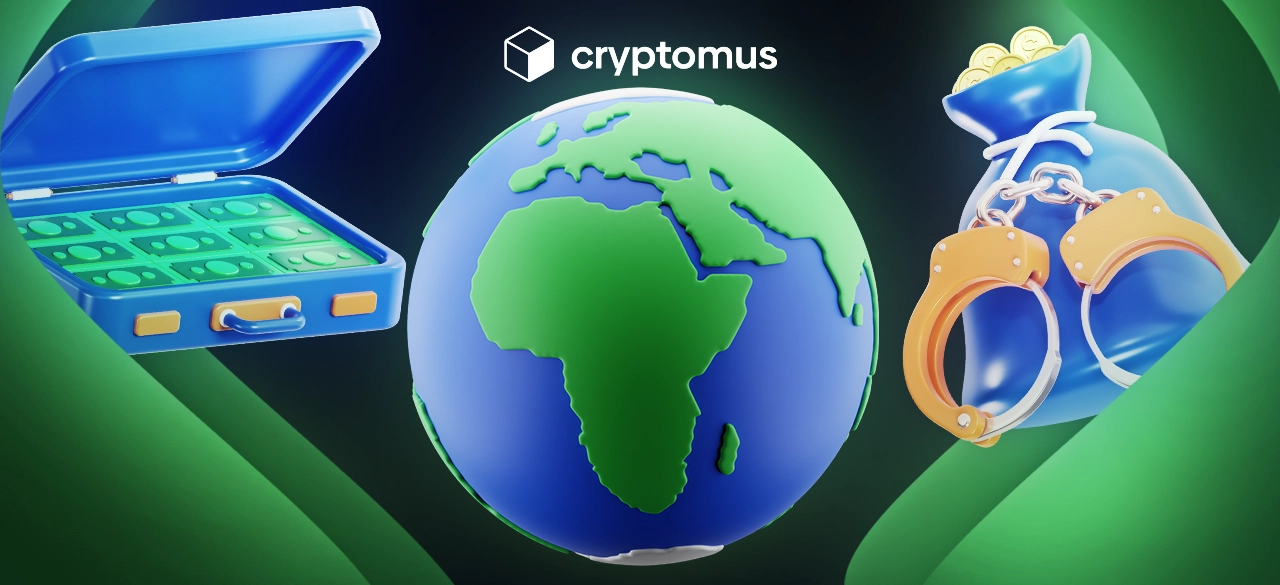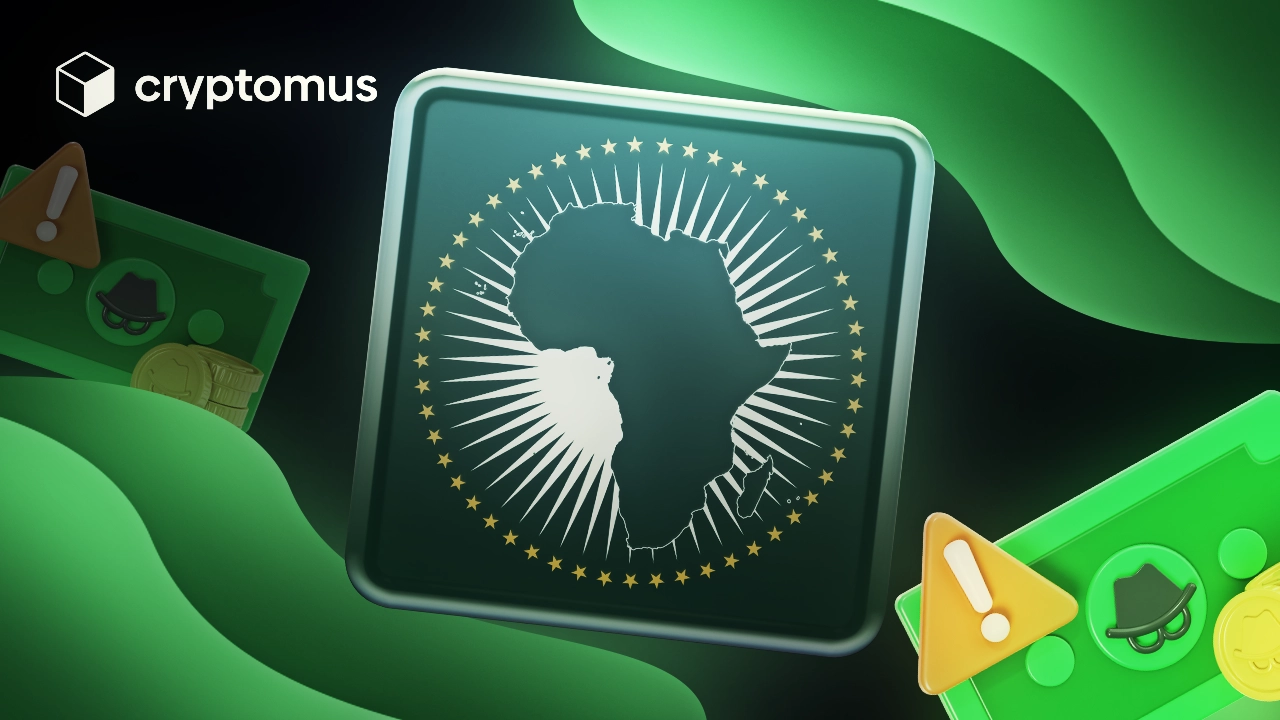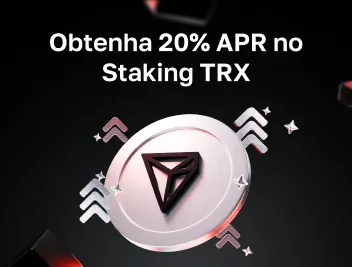
Combate à Corrupção: O Bitcoin Conserta a África Ocidental?
Índice
Um dos maiores problemas que impedem o crescimento e o desenvolvimento na África Ocidental é a ditadura que se alastra em todos os domínios, especialmente no plano económico. Esta ditadura levou à ausência de sistemas de pagamentos internacionais e a sistemas locais corrompidos ou ineficientes, fazendo com que o povo da África Ocidental procurasse outras soluções para ganhar mais liberdade no panorama financeiro.
A crescente popularidade das criptomoedas, especialmente do Bitcoin, e o seu atraente conceito de blockchain, que dá total liberdade sobre dados e ativos, tornam-no na alternativa perfeita que as pessoas da África Ocidental estão a começar a adotar.
No artigo de hoje veremos como as criptomoedas e os Bitcoins ajudam a combater a corrupção nesta parte do mundo.
O papel do Bitcoin na África Ocidental
O Bitcoin em África não é tão bem-vindo como poderíamos pensar. Na verdade, devido à sua descentralização, instala-se um sentimento de medo entre os governantes e órgãos reguladores, além do medo do financiamento do terrorismo e da lavagem de dinheiro. Como resultado, muitos países da África Ocidental implementaram regulamentações e proibições rigorosas que retardam drasticamente a adoção do Bitcoin em África.
Porém, mesmo com todas as restrições e proibições, as pessoas encontraram uma forma de utilizá-los e, com isso, as pessoas começaram a ganhar mais liberdade. Por exemplo, no Senegal, o Bitcoin tornou-se mais do que apenas uma moeda. Simboliza um movimento em direção à autodeterminação e uma ruptura com os sistemas financeiros tradicionais.
Na Nigéria, a criptomoeda foi completamente proibida e ilegal. Até o Banco Central da Nigéria (CBN) ordenou que os bancos de todo o país fechassem contas para qualquer pessoa que lide com criptomoeda. Mas graças à popularidade do Bitcoin em África e à poderosa determinação das pessoas em conquistar a liberdade, a Nigéria levantou a proibição de transacções de criptomoedas em Dezembro de 2023. Isto mostra o impacto da criptomoeda no desafio aos sistemas financeiros tradicionais e na promoção da liberdade financeira em vários países.
Bitcoin e África têm um longo caminho juntos, e o que aconteceu na Nigéria é apenas mais uma confirmação. Se quiser saber mais sobre criptomoedas na África, você também pode ler este artigo: “Pagamentos em criptomoedas para países africanos”.
Estratégias para usar Bitcoin no combate à corrupção na África Ocidental
Como vimos antes, África e Bitcoin estão relacionados, especialmente na África Ocidental, onde a sua adoção cresce dia após dia. Aqui estão as estratégias mais utilizadas para combater a corrupção na África Ocidental:
- Fortalecimento das medidas anticorrupção
- Melhorando a inclusão financeira
- Facilitando Doações Diretas
- Reduzindo a dependência de sistemas corrompidos
- Colaboração transfronteiriça anticorrupção

Agora vamos ver em detalhes como essas estratégias são implementadas:
-
Fortalecimento das medidas anticorrupção: O Bitcoin usa contratos inteligentes que garantem que os fundos sejam liberados apenas sob condições específicas, reduzindo o risco de desvio por indivíduos corrompidos.
-
Melhorando a inclusão financeira: Fornecer identidades digitais por meio de blockchain pode ajudar na criação de um sistema bancário mais inclusivo. Isto pode permitir que mais pessoas participem legitimamente na economia, reduzindo o espaço para a corrupção em sistemas baseados em dinheiro.
-
Facilitando Doações Diretas: As criptomoedas podem ser usadas para fazer doações diretamente sem envolver os sistemas de pagamento locais, permitindo que os destinatários ou projetos recebam o valor total. Isto pode garantir que uma maior parte do dinheiro doado atinja os objetivos pretendidos.
-
Reduzindo a Dependência de Sistemas Corruptíveis: A promoção de serviços descentralizados que permitem a compra de Bitcoin em África ou a integração de pagamentos criptográficos em mercados pode reduzir a dependência de serviços estatais ou monopolistas potencialmente corruptos ou ineficientes, e um exemplo de tal serviço é Cryptomus.
Cryptomus permite comprar/vender Bitcoin e várias outras criptomoedas. Também permite a integração de um sistema de pagamento criptográfico para empresas através de vários métodos de integração: API, plugin CMS, código QR e muitas outras formas.
- Colaboração transfronteiriça anticorrupção: A utilização de blockchain para transações transfronteiriças pode facilitar a colaboração e a supervisão internacionais, tornando mais difícil para funcionários corruptos ocultarem ativos no exterior.
O Bitcoin oferece esperança na luta contra a corrupção na África Ocidental?
A adoção do Bitcoin na África oferece múltiplos benefícios na luta contra a corrupção. Também traz esperança de uma vida melhor, com menos corrupção e mais liberdade. Principalmente através de sua descentralização, transparência e segurança. Veja como o BTC e as tecnologias relacionadas contribuem positivamente:
-
Descentralização: Graças à descentralização oferecida pelas criptomoedas, o risco de concentração de poder nas mãos de poucos, que é um risco de corrupção comum em sistemas tradicionais, é minimizado.
-
Transparência e rastreabilidade: As transações no BTC África são registradas em um blockchain, um livro-razão público que qualquer pessoa pode inspecionar, mas não alterar. Esta transparência pode dissuadir transações corruptas devido ao medo de serem detetadas.
-
Segurança: Bitcoin utiliza técnicas criptográficas, e isso torna as transações em BTC resistentes a adulterações. Este recurso de segurança é fundamental para prevenir fraudes e garantir a integridade das transações.
-
Capacitação e Inclusão: Bitcoin para África é comparável a uma revolução digital que tem o potencial de transformar a forma como as pessoas em África acedem e gerem as suas finanças. Pode fornecer serviços financeiros à população sem conta bancária e reduzir a dependência de dinheiro e de sistemas locais.
Avaliando o potencial de longo prazo do Bitcoin no combate à corrupção na África Ocidental
África A adopção do Bitcoin tem o potencial de combater a corrupção na África Ocidental, aumentando a sua transparência, descentralização e benefícios de inclusão financeira.
No entanto, enfrenta obstáculos significativos, como infraestruturas tecnológicas, literacia digital, volatilidade dos preços e riscos de segurança. O desenvolvimento de quadros regulamentares robustos e a garantia da cooperação internacional são fundamentais para o seu sucesso. Requer um esforço multifacetado que abrange aspectos tecnológicos, educacionais e regulatórios.
Obrigado por ler este artigo sobre como o BTC está ajudando a combater a corrupção na África Ocidental. Deixe um comentário abaixo e compartilhe sua opinião sobre como a criptografia está melhorando nosso mundo.
Simplifique sua jornada criptográfica
Quer armazenar, enviar, aceitar, apostar ou negociar criptomoedas? Com o Cryptomus tudo é possível — cadastre-se e gerencie seus fundos de criptomoeda com nossas ferramentas úteis.
Iniciar









